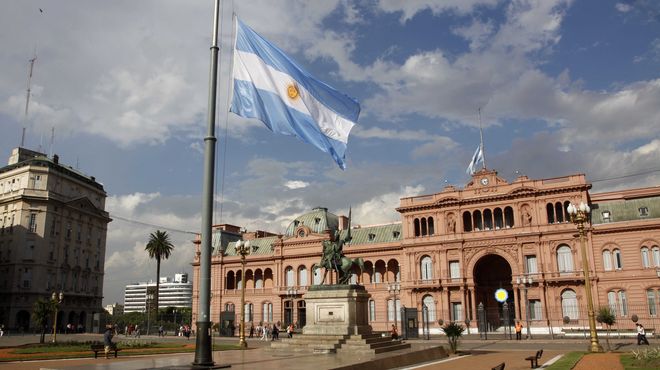Argentina seeks IMF loan
May 11, 2018 | Expert Insights

Argentina has appealed to the International Monetary Fund (IMF) for an emergency credit package of US$30 billion to avoid a financial crisis and rescue its currency from depreciating further.
This happens in context of the central bank raising interest rates from 33.25% to 40%.
Background
Argentina is the eight largest country in the world and covers most of the southern portion of South America. Following three centuries of Spanish colonization, it declared independence in 1816.
The 1970s ushered in a period of military dictatorship and repression during which thousands of presumed dissidents ‘disappeared’ or were murdered. Defeat by the British in the Falklands Islands War of 1982 led to the fall of the military regime and the reestablishment of democratic rule, which has endured despite various economic hardship.
The Argentine Great Depression (1998 -2002) caused the country’s economy to shrink by 28%. In 2001, President Adolfo Rodriguez Saa declared a default on the state’s foreign debt. Many people in Argentina still blame the IMF for the policies that led to the 2001 financial and economic crisis. The country defaulted on US$80 billion of sovereign debt – the biggest in history and millions of Argentines were plunged into poverty.
In 2013, the country was censured by the IMF over the inflation and economic growth data published by the administration of President Christina Fernandez de Kichner. It was a step that finally led to Argentina’s expulsion from IMF.
Elected in 2015, President Mauricio Macri took steps to liberalize the Argentine economy by lifting capital controls, floating the peso, removing export controls on some commodities, and cutting energy subsidies. In 2017, the Argentinian economy grew at 2.5%, and public debt was approximately 54% of GDP.

Analysis
Recently, Argentina reported surging interest rates and stubbornly resistant inflation levels. The country’s appeal to the International Monetary Fund for an emergency credit package emphasized its impending financial crisis and foreign debt default. A similar case was seen in December 2001, when the peso dropped overnight to a fifth of its value against the dollar since the beginning of the year. The central bank had hiked interest rates by 12.75% and sold US$5 billion of its currency reserves. The finance ministry announced that it would shift this year’s target deficit from 3.4% to 2.7%.
“This will allow us to face the new global scenario and avoid a crisis like the ones we have faced before in our history,” the President Mauricio Macri said. “During the first two years, we have had a very favorable global context, but today that is changing, global conditions are becoming increasingly complex due to several factors: interest rates are rising, oil is rising, currencies of emerging countries have been devalued, all variables that we do not control.”
Over the last few months, the Argentinian currency has been losing value against the dollar at a steady rate. It has fallen from under 20 pesos to the dollar to 24 pesos despite the latest rate rise. The peso has depreciated by 18% so far this year. Inflation a perennial problem in Argentina was pegged at 25% in 2017, the second highest in Latin America.
According to government sources, Macri will be requesting US$30 billion from the IMF at below market interest rates. The depreciating value of the peso has been a heavy drain on central bank reserves in the last few months.
“Going to the IMF at 4% is saving about half on the interest rate,” stated Elisa Carrió, head of the Civic Coalition party which is part of Macri’s governing coalition. “This will allow us to be covered until 2019.”
Last month, the IMF reduced its growth forecasts for Argentina during 2018 from 2.5% to 2%. The government also seems unlikely to meet its projected inflation rate of only 15% for 2018, with the IMF predicting 19.2% instead.
Assessment
Our assessment is that with Argentina presently facing trouble on several fronts, financial markets seem to have lost their appetite for Argentine risk. We believe that the disquiet over the governments management of the economy grew in December after it pushed the central bank to ease this year’s inflation target from 12% to 15%. We feel that investors may have panicked at the country’s wide fiscal and current account deficit, its 25% inflation, and its rapidly expanding pile of foreign debt.








Comments